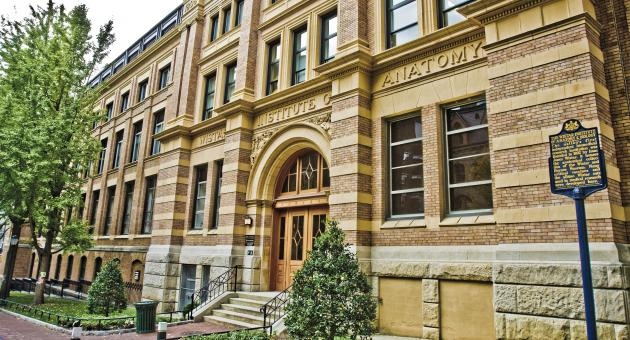Moulder Center, Wistar Institute will partner in drug discovery

The Moulder Center for Drug Discovery Research in Temple University’s School of Pharmacy has entered into a collaborative partnership with The Wistar Institute to accelerate the transition of biomedical research into new drug therapies for cancer and other diseases.
“The Wistar Institute has world class expertise in several areas of biomedical research, such as cancer biology, immunology, virology and translational research. They have a number of innovative targets and approaches in these areas,” said Magid Abou-Gharbia, director of The Moulder Center, professor of medicinal chemistry and associate dean for research at Temple School of Pharmacy. “We’re going to combine that with our drug discovery expertise to develop new drugs and therapies for cancer and other diseases.”
By harnessing the strengths of both institutions, researchers from the Moulder Center and The Wistar Institute will have access to cutting edge scientific expertise in basic biomedical research, medicinal chemistry, pharmacology and translational medicine.
“Wistar scientists excel in the sort of biomedical research that generates both potential drug targets and promising new inhibitors to attack those targets, but developing a useful human drug from a potential therapeutic is a slow and daunting process,” said Russel E. Kaufman, president and CEO of The Wistar Institute. “This collaboration would hasten the earliest stages of drug development by expediting very early phase research into pre-clinical trials, and ultimately to clinical trials in patients.”
Increasingly, academic institutions like Temple — through the Moulder Center — and the Wistar Institute are taking on the challenges of early-stage drug discovery, a role once exclusively filled by the biotech and pharmaceutical industry. In a struggling economy, as drug companies become more risk averse, they are spending fewer resources on the very early stages of the drug discovery process.
“Our scientists work very hard to understand the fundamental biology that underlies disease and would like nothing more than to see their efforts translated into useful therapies,” said Kaufman. “This partnership will enable us to reach out to industry and say ‘Here it is, a potentially viable new drug candidate. Let’s make this happen.’”
“We are going to take those targets discovered by Wistar scientists and we are going to develop innovative lead compounds which can impact those targets,” said Abou-Gharbia. “And we will modify those compounds to make them more drug-like.”
Abou-Gharbia said that the compounds will be tested in animal models and once their efficacy and safety are demonstrated, the Moulder Center and the Wistar Institute will work with partners in the pharmaceutical industry to take the potential therapies into clinical trials.
More than a dozen Wistar research projects have already been identified as potential candidates for this collaboration. These include inhibitors that target telomerase, a protein essential in cancer growth and the natural aging process; and Epstein-Barr, a virus responsible for numerous diseases including forms of head and neck cancer.
Abou-Gharbia said he is particularly pleased that the Institute selected the Moulder Center to be their preferred partner for drug discovery collaboration.
“Our Drug Discovery Center is currently engaged in collaborative scientific programs with numerous research institutions in the U.S. and abroad,” he said. “We are excited about the opportunity to work with Wistar scientists.”